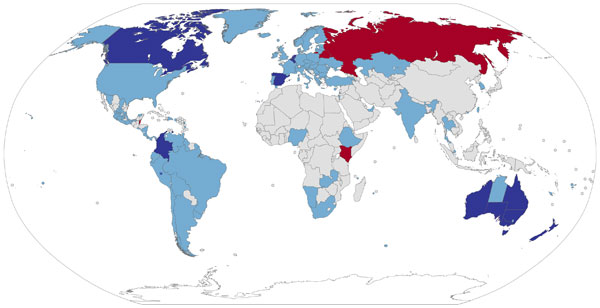The criminal who killed her five children euthanized

[Legality of Euthanasia]
Genevieve Lhermitte, who killed five of her children in Belgium in late February 2023, died by euthanasia.
In 2007, Genevieve Lhermitte killed her one son and four daughters; after that, she attempted suicide while her husband was away.
After her arrest, Lhermitte got a psychiatric evaluation and was diagnosed with severe depression and psychotic symptoms.
In October 2008, she was found guilty of murder by a Belgian court and sentenced to life in prison.
After that, she was transferred to a mental hospital, and 16 years later, she was euthanized of her own will.
Her case sparked widespread debate about mental health, postpartum depression, and the ethics of euthanasia.
Euthanasia means comfortable death in Greek and mainly refers to the act of cutting off a patient's life to eliminate the extreme pain of a patient on the verge of death.
With the development of medical technology, people's interest in euthanasia is increasing as it becomes possible to sustain life, even from diseases that are difficult to recover from.
As a result, with the serious consideration and discussion of the relationship between doctors and patients, human freedom and rights, and moral responsibility, there are many arguments for and against euthanasia.
A few countries, including Belgium, Switzerland, and several states in the United States, allow it.
The permissibility of euthanasia depends on culture, religion, ethical values, laws, and more.
Euthanasia is divided into two main categories: euthanasia with dignity and beneficial euthanasia.
They are mainly referred to as active euthanasia and passive euthanasia.
Active euthanasia is euthanasia carried out by injecting lethal doses of the poisoned drug into patients with a terminal illness or severe pain.
This is also called doctor-assisted suicide, a topic of many pros and cons.
Passive euthanasia is euthanasia that is carried out by ignoring diseases that cannot be cured without continuing treatment.
It is a type of euthanasia that has long been discussed and performed in many countries because it can reduce the pain and financial difficulty of patients and their families.
In the case of Korea, the proportion of people who agreed with it is 76%, which is high.
It can also be distinguished according to the patient's will.
These types of euthanasia are divided into three categories: volatile euthanasia, non-voluntary euthanasia, and involuntary euthanasia.
Voluntary euthanasia means euthanasia done by the patient’s will.
Non-voluntary euthanasia is carried out with the agreement of family members when the patient’s decision-making is difficult.
For example, in 2008, his wife and doctor demanded passive euthanasia for Vincent Lambert, 39, who became a plant man in a motorcycle accident in France, and the European Court of Human Rights (ECHR) allowed it.
However, he appeared to react to his mother's voice with his eyes open, sparking controversy in France as his mother opposed euthanasia.
The last one is inviolate euthanasia.
It proceeds despite the opposition of the patient.
As such, euthanasia is usually done by patients with incurable diseases such as cancer, but also, there are many cases where euthanasia is chosen due to mental problems.
Euthanasia is considered a sensitive issue worldwide.
Some people think euthanasia can be a helpful tool to relieve human suffering and reduce the pain of death.
Lhermitte's case remains highly controversial, with strong opinions on both sides of the euthanasia debate.
The case of Genevieve Lhermitte is a tragic reminder of the devastating effects of mental illness and the importance of providing adequate support and treatment to those in need.
The decision to pursue euthanasia should be made with careful consideration, taking into account both the individual’s right to autonomy and the importance of respect for human life.
As debate continues, it remains to be seen how society will navigate the complex and emotional terrain of end-of-life decision-making.

- Eunpyo Park / Grade 9 Session 1
- St.Bernards Academy

![THE HERALD STUDENT REPORTERS [US]](/assets/images/logo_student_us.png)
![THE HERALD STUDENT REPORTERS [Canada]](/assets/images/logo_student_ca.png)
